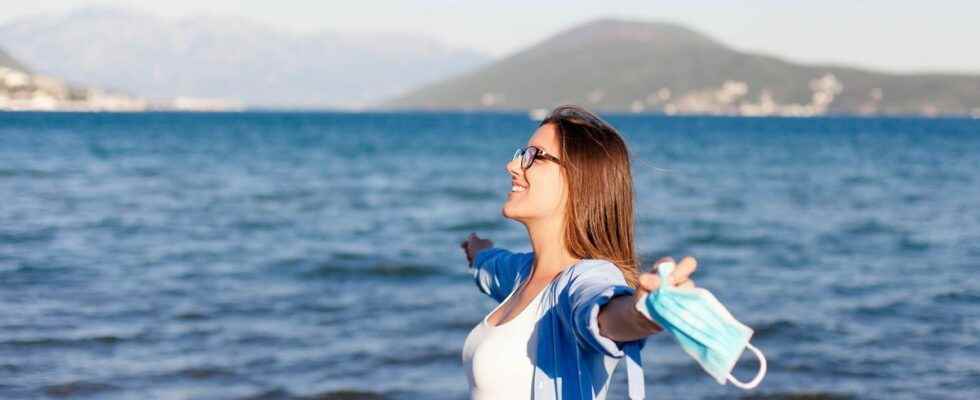Published on
Updated
Reading 3 mins.
in collaboration with
Dr Gérald Kierzek (Medical Director)
It’s official: Parliament has definitively adopted a bill which puts an end to the health pass and other measures relating to the Covid-19 pandemic, on August 1st. But what does this change, concretely? Explanations.
The bill adopted by parliamentarians sets a general framework in the event of a new health crisis. For the Minister of Health, “this text is a necessary shield in the face of an epidemic of Covid-19 which has not yet said its last word”.
No more confinement or health passes
In the text of the law adopted, the repeal of the part of the Public Health Code relating to the state of health emergency and the crisis management regime are official. The use of confinement or curfew can therefore no longer take place.
The health pass as a control tool after returning from vacation abroad is no longer relevant either. These checks end on August 1st. A decision hailed by Dr Gérald Kierzek, emergency physician and medical director of Doctissimo, who believes that it is “a return to common sense”.
Except in case of “dangerous variant”
The only exception to the rule: “in the event of the appearance and circulation” of a particularly dangerous variant, or for trips to Overseas communities, in the event of saturation of hospitals, the government may impose until March 31, 2023 a negative Covid-19 screening test before boarding a plane to mainland France and for overseas travel.
The type of test is not yet defined. The senators retained, as a valid document, “the result of a virological screening examination not concluding that contamination” for people 12 years and older. It will therefore not be a certificate of vaccination or recovery from the disease. In addition, it is the Prime Minister who will be able “by decree” to impose these screening tests, after consultation with “the competent scientific authority”.
Epidemic monitoring tools are maintained. The national screening system (Sidep) which consolidates test results is extended until June 30, 2023. For Contact Covid, which monitors infected people, it will be until January 31, 2023.
No more mandatory masks in hospitals or nursing homes
The mask is no longer compulsory in closed places open to the public with the exception of hospitals and nursing homes. It is also always recommended in places receiving a fragile public such as pharmacies for example.
From August 1, the government will no longer be able to impose it, including, therefore, in hospitals and for the elderly. However, he strongly recommends it and can always, if necessary, make it mandatory. “Indeed, concerning the wearing of the mask, it can always be made compulsory by the establishments themselves. But I think people will keep the good sense to wear it in these places, in the presence of fragile people” adds Dr. Kierzek.
This is also the case of the AP-HP which already communicates on this subject. She announces that due to the fragile public she welcomes and the high level of circulation of the virus still at the present time, the mask will always be compulsory “inside her establishments”. The health pass, “will no longer be required”.
Consult a GP online
Unvaccinated caregivers still sidelined for now
Finally, there remains the question of unvaccinated nursing staff. They could be reinstated in the near future but under conditions. Indeed, the bill imposes the mandatory reintegration of these personnel as soon as the health situation no longer justifies imposing a vaccination obligation on them. This is therefore not currently the case.
It is the High Authority for Health that will have the heavy task of making this observation, either by self-seizure or by referral to the Ministry of Health, the Covid-19 control and liaison committee, or by the business committees. of the National Assembly or the Senate.
